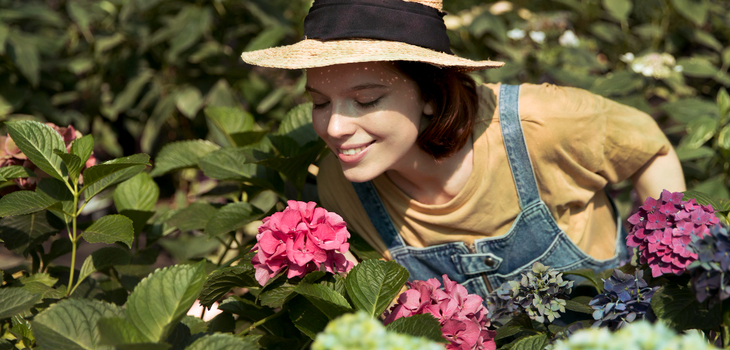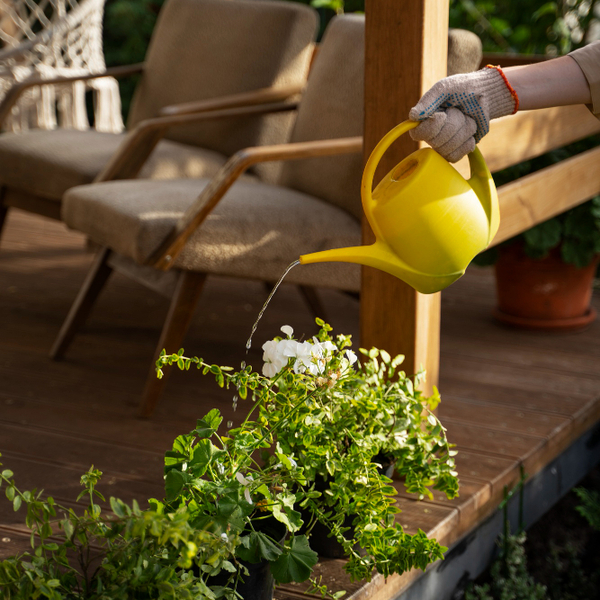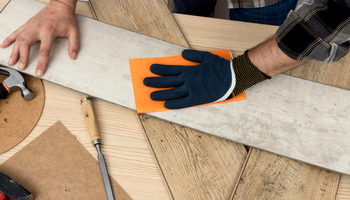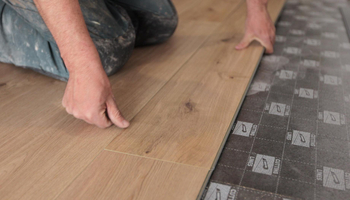Summer Bliss: How to Maintain a Flourishing Garden in the Heat

It is usual for house owners to worry about their gardens surviving heat during summer. An extended period without rain is detrimental to a garden's health, and the scorching heat of the summer can make a thriving garden wither. For these reasons, homeowners need to know tips for maintaining a summer garden.
This blog will explore strategies to keep your garden thriving in summer and give top tips on hot-weather garden maintenance. You will understand how to water your garden correctly and make it evergreen all year round, regardless of the season.
The heat during summer can affect your garden in a way that will catch the most experienced gardeners off guard. Some crops can withstand heat to an extent, while hot weather can cause irreparable damage to others. Hence, arming yourself with information on summer garden care will benefit you, your plants, and the environment.
Tips for Keeping Your Garden Thrive During Summer
Some tips can help your plants not to surrender to the heatwave during summer. Below are some of the tips:
Create Shade for Your Plants and Garden
Creating shade for your plant is essential to its survival during the heat. There are various ways to provide shade for the plants. For example, you can use a shade structure such as an arbor, pergola, or umbrella. Interestingly, these structures will provide shade and beautify the garden. Also, you can use a shaded fabric with different densities to reduce and determine the amount of sunlight your plants get.
Spread Mulch
Mulch is a material spread over the ground or a plant to insulate or enrich the soil. Examples include decaying leaves, harvest remains, bark, and compost. Spreading mulch over your soil is one of the best things you can do for your garden in summer.
The mulch will cover the ground, shielding the soil from the sun's intensity and keeping it cool. Also, the evaporation rate is reduced, and more moisture will be retained in the soil. In addition, as the mulch decomposes further, the soil structure improves, and more nutrients will be added.
Regularly Remove Weeds and Deadheads
Some weeds thrive well in summer and quickly grow from that tiny scrub in winter to a big tree during the heat. You should eliminate them from your garden because they will compete with your typical plants for moisture and nutrients. Also, these weeds can encourage pests and diseases to move into your garden, affecting unwanted plants and crops.
Similar to this is the deadheading of faded flowers. It requires removing a plant's dead parts, including dry leaves. Hence, more energy is directed into the plant, making them look healthy and beautiful.
Choose Drought Resistant Plants
There are some drought-resistant plants, and choosing them is a good choice for your garden during extreme heat and summer. First, you need to do some research about some of these plants that are native to your area. You can get hints from botanical gardens and gardening clubs in your area. You can choose some of these plants and plant them in your garden. All these are important to maintain a garden in summer.

Use Properly Equipped Containers
Some gardens contain plant pots of varying sizes. Larger containers contain more soil and need more water than small pots. With the enormous size of the pot, it will be easy to retain moisture. Hence, you can keep and store your small pots in summer and use the big ones. Keep in mind that the bigger the pots, the better.
Also, the type of pot matters. Pots made of concrete and ceramic do not attract heat faster, making them slower to warm up and making the plants in them excellent for a long time. Reflective pots also reflect rays of sunlight, making them absorb less heat. To achieve a better moisture level, you can move them to a more relaxed place to make them excellent for an extended time.
Watering Your Garden Properly
Water is essential to your plants during summer. Watering the garden properly can be challenging with the increased temperature and water scarcity.
The garden needs frequent watering to maintain its freshness and make it thrive well. Also, it needs deep watering that will allow water to penetrate inches into the soil and encourage the roots of the plants to go deeper. Below are some tips to keep in mind when watering during summer:
- Give your plants the right amount of water.
- Water the plants deeply once or twice a week to encourage the plant to grow deeper.
- Water in the morning or evening. Avoid watering in the day's heat to avoid immediate evaporation without the water penetrating the soil.
- Water at the correct height
- Ensure water gets to all the parts of the plant. Do not water the leaves only; leave.
- If you are using pots, water the entire pot, not just a spot in the corner or the center, to avoid weak roots.
Technology has affected all spheres of life, and summer garden care is no exception. You can install a deep irrigation system that will deliver water directly to the plant's roots. It is one of the most efficient systems for ensuring water gets to the plants directly.
Using irrigation is simple and efficient. However, you must watch out for leaks and blockages affecting how much water gets to your plants' roots.
Your Nearby Gardners is on Moovick!
Summer is the time of the year when gardens bloom in different colors. While we are sure you can make more informed decisions with the summer garden tips shared, it takes more than knowing for individuals with many tasks on their plates to find time for practice.
At Moovick, we connect you with the nearest professionals for gardening services to keep your garden thriving all year round, particularly in summer. Gardners on Moovick are skilled whizzes with the proper knowledge and unique leads for gardening each season. Get handyman service providers for essential garden maintenance.
Popular Articles

The Best International Moving Companies in Germany

Choosing the Perfect Flooring: A Comprehensive Guide

Best materials for flooring in your home

Finding Employees Abroad: A complete guide

Exploring Eco-Friendly Flooring Installation Options

The Art of Seamless Furniture Logistics: How Moovick Ensures Smooth...

